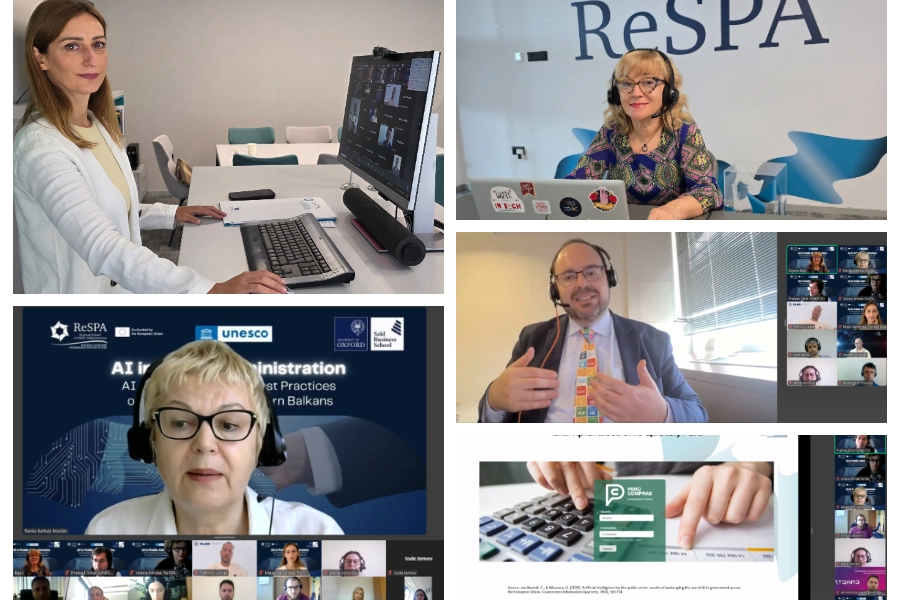
Toward AI-ready Public Servants: ReSPA, UNESCO, and Oxford's Saïd Business School Join Forces to Discuss Strategic Value of AI for Governments
22 July 2025, Online
In a powerful display of international collaboration and forward-looking public sector reform, the ReSPA, in partnership with UNESCO and the University of Oxford's Saïd Business School, hosted virtually a webinar on “AI Competences and Best Practices of Using AI in the Western Balkans.” Over 100 professionals from the region’s public administrations, including members of the Digital Transformation and Human Resources Thematic Working Groups, delved into global and European trends in AI adoption, the strategic value of AI for governments and the institutional and human capacity required to ensure effective and ethical implementation.
Director Handjiska Trendafilova underlined at the opening: “Artificial Intelligence is already shaping public administration across the Western Balkans. To harness its full potential responsibly, we must build ethical, inclusive, and future-ready competencies through regional cooperation, knowledge-sharing, and strong institutional partnerships,” while Guilherme Canela, Director, Division for Digital Inclusion and Policies and Digital Transformation, UNESCO, has underlined the importance of empowering public institutions through joint efforts aimed at building the competencies needed for public servants to harness the potential of AI in a responsible and ethical manner.
Prateek Sibal, Programme Specialist at UNESCO, during a keynote presentation, outlined the key global and European trends in AI adoption in the public sector, highlighting both the opportunities and risks associated with its deployment. An interactive poll engaged participants in identifying challenges specific to the Western Balkan context, including gaps in digital literacy, regulatory frameworks, and ethical AI usage.
A major highlight of the event was the presentation of the Massive Open Online Course (MOOC) on AI and digital transformation in the public sector, developed by the Saïd Business School at the University of Oxford, introduced by Caroline Williams. The course is designed to strengthen AI and digital transformation capacities among public servants.
In a session focused on institutional readiness, Miriam Stankovich, Digital Governance Specialist, offered practical insights into the core competencies required to build an AI-ready public administration. She underscored the importance of tailored training, strategic leadership, and cross-sector collaboration.
The webinar concluded with a discussion on best practices from the Western Balkans, where participants shared real-life use cases of AI in service delivery, internal process optimisation, and citizen engagement. The final segment summarised the key messages and identified next steps, including the dissemination of learning materials, promotion of the Oxford MOOC, and the initiation of regional peer-learning opportunities.
“AI holds significant promise for enhancing public administration," remarked Bojana Bajć of ReSPA, emphasising, "but its deployment must be strategic." Bajć underscored the criticality of comprehensive capacity development at both individual and institutional levels, alongside regional collaboration and knowledge exchange, as pivotal factors driving advancements in this domain.



